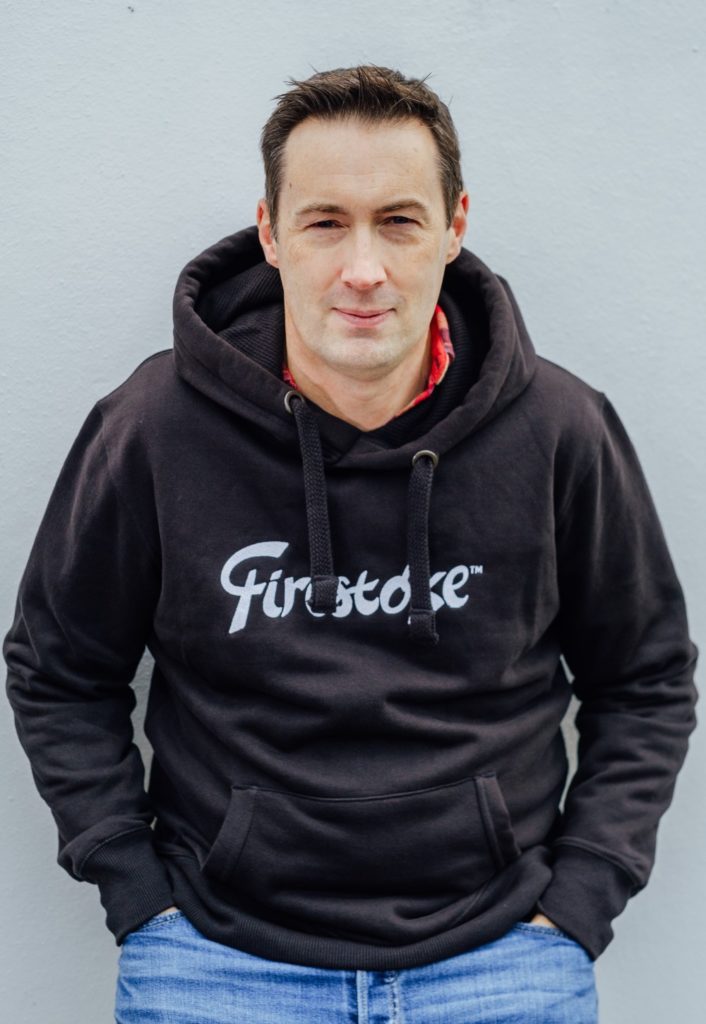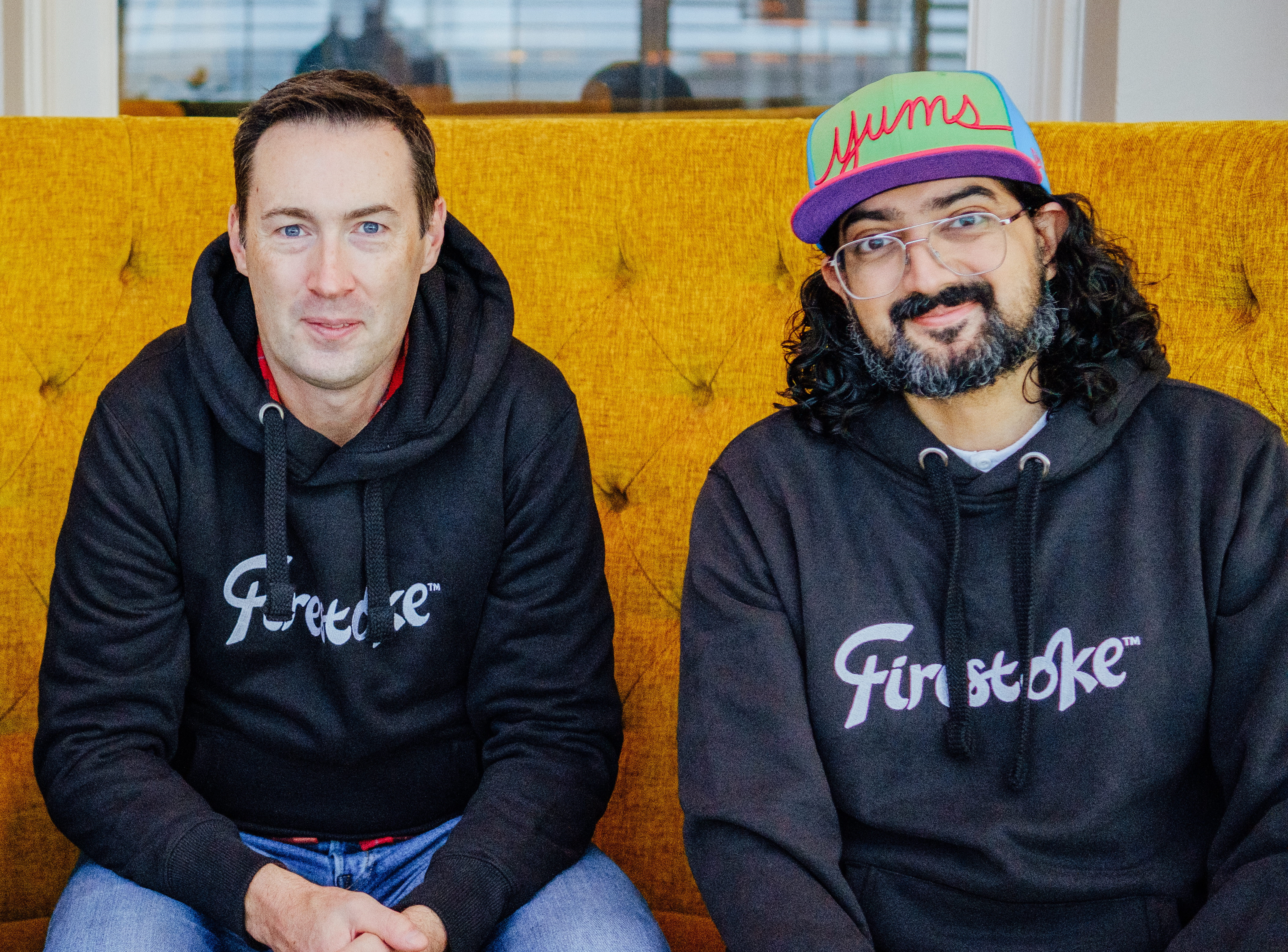It’s time to welcome a new name to the games industry: Scottish PC/console publisher Firestoke, armed with a mission to put out non-violent, sociable indie-developed games. We spoke to CEO Paul Farley.
The arrival of a new games publisher, in the form of Scotland-based Firestoke, has to be construed as an indication that the UK’s games industry is in a good place right now. Games publishing is, famously, a tough business, offering vast potential rewards but at the expense of an awful lot of risk. A matter of days after the birth of Firestoke Games was announced, we managed to interview the company’s CEO, Paul Farley, who set out an appealing vision for his fledgling company.
Firestoke, assuredly, is not interested in becoming the next Activision or Ubisoft. Its mission, as set out on the Firestoke website, is to publish games which: “Spark joy, surprise and delight in a global audience of players.” Farley explains that his vision for the company is a progressive, modern and socially-conscious one: “We’re not going to be publishing shooters and RPGs, or complex simulation games; we’re very much about providing short, joyful, positive game experiences. We’re very into social play as well: we love to bring people together within games. I think that’s something that has really resonated with us over the pandemic, as we’ve seen our families join together socially within games, probably for the first time, and seen the positive impact that’s had in people’s lives.”

Farley admits that: “It sounds a bit hippyish, and maybe an idealistic starting point, but I think we’ve all been involved in building, let’s say, traditional competitive, violent games, in the past, and now we want to help balance that out a little bit by producing and publishing games that have a positive impact on people’s lives and bring them together.” Which surely demands applause: if you can’t be idealistic when setting up a new company, what hope is there? An engaging and articulate interviewee, Farley adds: “We’ll find out pretty soon if it’s a good idea, or if we’re completely deluded.”
Two games signed, more to come
Farley reveals that the first Firestoke games should arrive before the end of 2022: “At this point in time, we’ve signed two games and we’re looking for another couple of games for wave one, which will be for release this year. Then we’ll get cracking onto wave two. Each of the games we’ve signed are short, high-energy arcade games that have social elements – they have co-operative gameplay as built-in features. One developer is based in Malta, and the other one is in Bristol, so we’re signing games from developers that can be literally anywhere globally, which is great.”
Self-funded, for now
One thing that all publishers need is funding, and before Farley explains Firestoke’s status on that front, he embarks on a lesson in his recent employment history: “My background is originally in development: I set up a mobile games studio, Tag Games, about 15, 16 years ago and we’ve grown that. We also spun out a game analytics and live operations platform, called Chilli Connect, from it, which we sold to Unity. So, having done development, having done games technology, I spent a year with Unity.
Firestoke’s funding, says Farley, follows a similar path: “We are funding games, up to a modest indie level. Our initial funding has come directly from the founders and the shareholders of Tag Games. Much the same as we did with Chilli Connect: we spun Chilli Connect out of Tag Games, funded from the parent company. That’s where the initial funding has come from, but we’re actually in the process just now of raising our seed round of funding. Our aim is to have that in place by quarter two of this year, which will enable us to fund a second wave of games.”
Seeking quirky, fun social games
So, in an attempt to glean an idea of the sort of games that Firestoke will publish, what existing games would Farley have liked to see on the Firestoke label? “We’ve benchmarked a hell of a lot of games over the last nine months or so. One that would encompass that creative spark we’re so keen about, and that does something a little bit different which really innovates but, at the same time, has its finger on the pulse in terms of being commercially appealing, interesting and reaching a massive audience, would be Untitled Goose Game.”
Back in the day, Farley cut his development teeth at legendary Lemmings/Grand Theft Auto developer DMA Design. Farley continues: “Untitled Goose Game could have been a DMA game – it’s so off-the-wall. It’s an example of those happy events or situations that were strung together to build a success.
“But if I’m looking to other games that would be inspiring, we’ve got some of the Team 17 roster like Overcooked. Or [Devolver Digital’s] Fall Guys: very casual games that promote co-operative play and bring people together socially. We’re looking at much bigger games like Roblox and Minecraft: they have massive user-generated content elements to them. But I just love the way that people started to socialise within those games, and take them beyond the boundaries of what they were initially, becoming far more than just games.”
Small beginnings
Unsurprisingly, at its inception, Firestoke is a small, lean operation. But, Farley explains, there’s plenty of inspiration from successful publishers that started out similarly: “There are four of us. We have myself, we have a Design Director – which is quite rare, I think, for a publisher but maybe talks a little bit to the deeper level of creative input, and the sort of support we want to give our developers – and we have a Marketing Director and an External Producer. Over the next year, we would expect to add a few more people to the team. But we’re very reliant, as well, on external partners.
“I think the aim, really, is to keep things small and focused, and very friendly in terms of our culture internally. And to grow a very successful independent publisher without having to have an office, let’s say, in one of the large cities with 200 people in it. That’s not my dream as a founder, and our dream is to keep it relatively small. The beauty is that very small teams can have successful games. As a publisher, if you look at the likes of Devolver, Raw Fury and others, they have been very successful with very small teams, and we’re obviously planning to follow that mould.”

Fuelled by a resurgent indie developer scene
Asked where he sees Firestoke fitting into the UK publishing scene, Farley expands on his admiration for Devolver Digital, pointing out how the Fall Guys publisher enacted an IPO valuing it at over a billion dollars, despite only having 40 employees. Plus he namechecks Team17 again, No More Robots, US indie publisher Whitethorn Digital and TinyBuild as inspirational.
But he also gives the impression that the current rude health of the UK indie developer scene is what has really fuelled the decision to get Firestoke up and running: “One of the reasons to start a publisher at this stage is that we see a lot of the innovation and creativity that’s happening within games is happening with small teams that are, let’s say, released from some of the restrictions that you have working in a large developer or publisher.”
He adds that, thanks to their experience at mobile studio Tag Games, the Firestoke team is well versed in the intricacies of extracting and using data about how games are played, and will use that experience with Firestoke’s PC and console games: “Coming from mobile, we’re looking at how we apply some of what we’ve learnt around how to use data to inform the embedded design: how do we learn from our players, how do we identify our audience better? And really deliver to our audience the types of games that they want to play, rather than just building the types of games that we want to play ourselves?
“It’s an interesting place right now, where you can have these two worlds colliding, with that desire to innovate, create and break the mould, but at the same time having access to data that gives you insights on your players and your audience in a way that we didn’t have 20 or 25 years ago. We’re really interested in how we blend those two things together. Don’t lose that creative spark, but maybe use data to inform better decision-making, and maybe lower the risk as well on a game-by-game basis.”
Before long, details will emerge of the two games that Firestoke already has in the pipeline along, no doubt, with announcements regarding new signings, funding rounds and so on. Games publishing is a notoriously tough business which, in the past has seen even big names disappear without trace. But Firestoke, with its friendly, approachable, sociable and inclusive plan certainly seems to be built on an attractive premise. It will be fascinating to watch it progress from humble beginnings.
